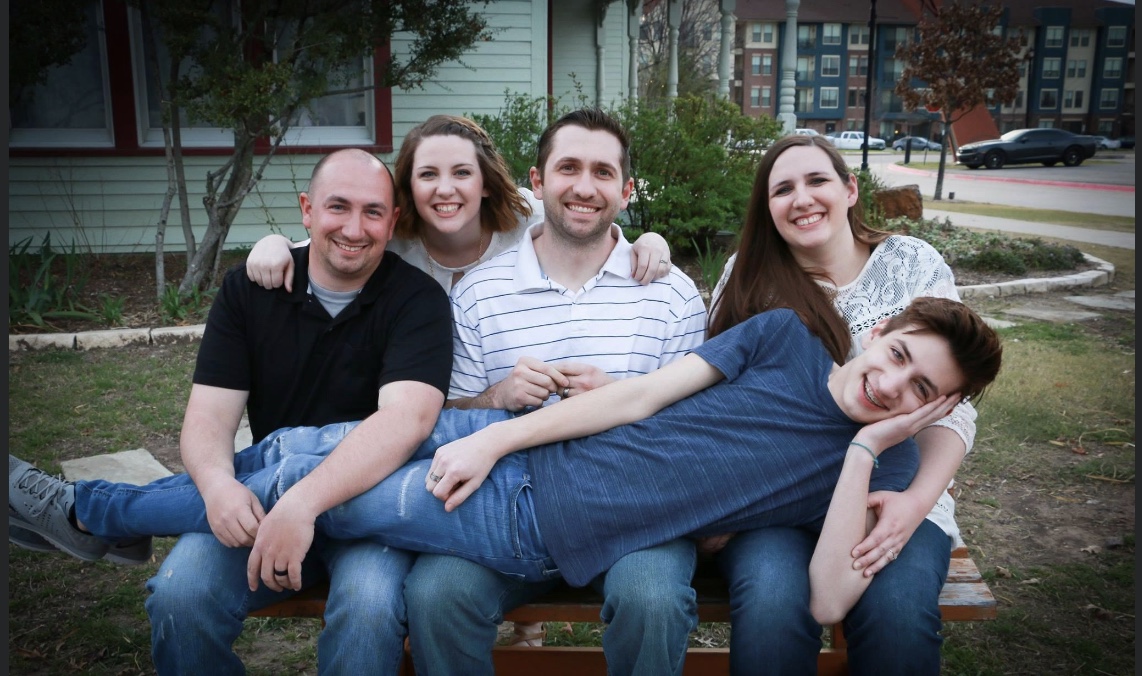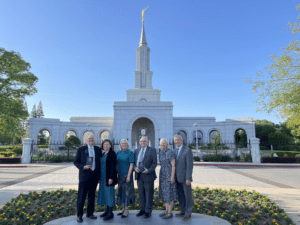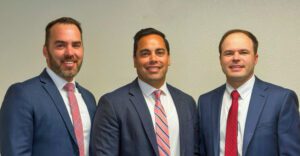Grieving after Suicide: “I Will Stick to the Plan”
Featured Photo: Tyler Family children, left to right, Austin, Sarah, Craig, and Ashley, with Christian in front. They revisited a pose in an old family photo for this picture. All photos for this article are courtesy of Bruce and Wendy Tyler.
Sometimes we study troubling statistics and trends in our society while forgetting that people are behind those numbers, facing a difficult and devastating reality that no one wants to wake up to each day. This is especially true with the issue of suicide. Bruce and Wendy Tyler of Celina, Texas, have been waking up to their new reality every morning since August 26, 2016, when they lost their 15-year-old son Christian. But as faithful and faith-filled members of The Church of Jesus Christ of Latter-day Saints, the Tylers have learned to lean on the power of the Savior’s Atonement and transform their loss into increased love, their despair into a wellspring of hope.

To most observers, Christian Tyler was your average teenager with a typically busy life. Wendy describes her youngest child as “a funny kid: sarcastic, witty, and kind of quirky.” He loved being with his friends, including camping and hiking with his Boy Scout troop. He enjoyed drawing and being creative, using how-to videos on YouTube to fuel his ideas. He had just begun his junior year, looked forward to taking classes in digital art and animation, and had college plans on his mind.

Yet, underlying the veneer of normality was Christian’s wrestle with depression. Wendy and Bruce say that they “quickly got him into a psychiatrist and found a counselor” when Christian threatened suicide in the fall of 2015. “Unbeknownst to us at the time,” says Wendy, “he had actually attempted several months before that.” It would take more than a year for Christian to open up to her about that first attempt. The day he came home from a Scout trip to Philmont in June 2016, he let his mom know how he had been feeling.
“I think he’d had a lot of time to think about things while he was up in the mountains,” says Wendy, “and he came back from that experience with a new perspective. He just sobbed as he let go of all that pain he’d been keeping inside. It was one of the few times he let me in, let me hold him and comfort him. The rest of the summer was just so wonderful. He was so much happier. Lighter.”

But Christian’s wrestle renewed a short time later, and Bruce, Wendy, and their surviving children will never know exactly why. As that last summer drew to a close, “Christian wasn’t going to his counselor each week,” Wendy shares. Instead, the family spent time traveling together, and things seemed normal. When the counselor reached out to see if Christian would be continuing his weekly sessions with his return to school, “Christian said that he was good and didn’t need to go anymore.” Wendy pauses. “That was Monday. We lost him on Friday.”
A single factor never causes suicide, and survivors are left not only with the grief and pain of a great loss but also with guilt and the haunting questions surrounding “if only.” Currently the 10th leading cause of death in the United States, suicides are happening far more often than we realize. Even in Texas, which ranks 40th in a state-by-state comparison of suicide rates, suicide has become the second leading cause of death among 10- to 34-year-olds, and more than 3,900 individuals died by suicide in 2018 (the most current data provided by the CDC). Although depression and other mental illnesses are risk factors for suicide, not everyone who has thought about suicide has a mental illness, and not all suicides are linked to mental illness, say Ken Alltucker and Lilly Price of USA Today. According to the U.S. Department of Health and Human Services, only 7 percent of men and 1 percent of women with depression die by suicide.
As part of his treatment for depression, Christian worked with his counselor to think about the big picture. A timeline he created during a session was shared with Bruce and Wendy after Christian’s death as they tried to figure out what they had missed. Although there were no concrete answers, they know that depression was a contributing factor. “He didn’t want to die,” says Wendy. “He just wanted the emotional pain to end.”
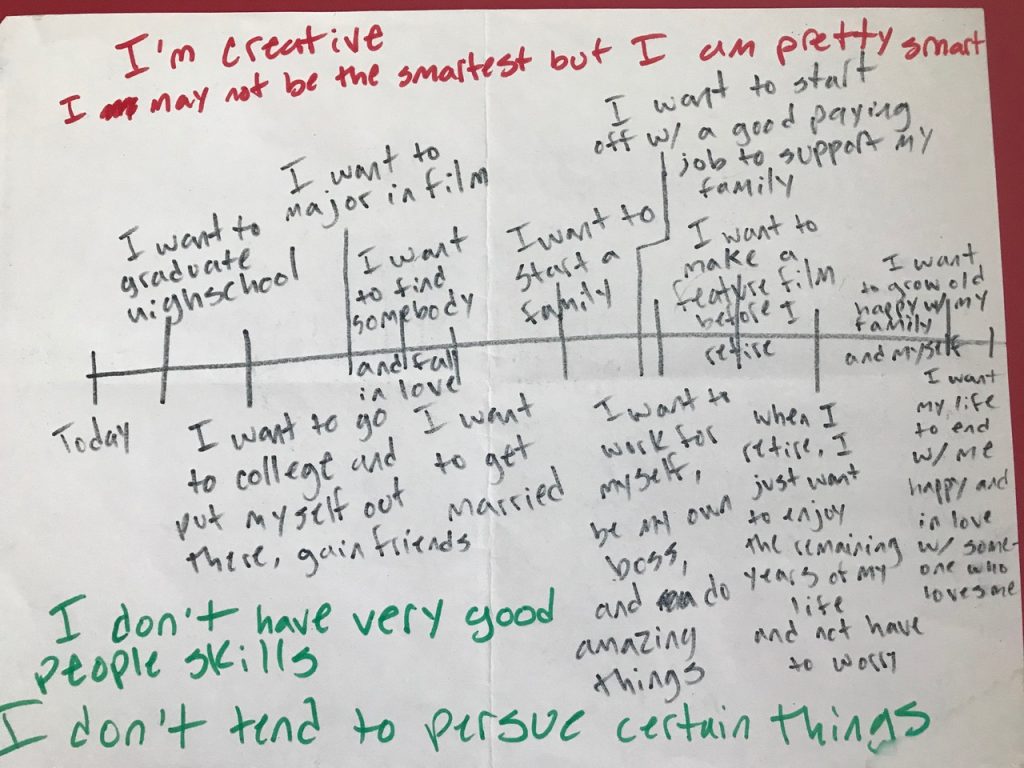
In the aftermath of losing Christian, Bruce and Wendy grappled with their own emotional agony. Bruce shares that Christian’s absence “left a hole in my heart big enough to drive a Mack truck through.” Wendy thought it “a cruel joke” when she opened her mailbox three days after Christian’s death and saw that suicide prevention was a central theme of the September 2016 issues of the monthly magazines published by The Church of Jesus Christ. They continued to shed many tears and ask many questions. They felt flashes of anger when other parents talked about everyday moments with their kids that they would never get to have; they often experienced waves of “pain [that] engulfed me once again and almost knocked me off my feet,” Wendy wrote in a journal entry.
But even in the midst of their fiery furnace, both Wendy and Bruce could recognize God’s hand in their lives and the Savior walking with them in their sorrow. On days that felt difficult to get out of bed and attend church, they were able to gain the peace and comfort they sought from sermons, lessons, and participation in the weekly sacrament ordinance. They read and reread inspirational quotes from Church leaders, compiled by a thoughtful friend. They listened daily to peaceful music centered on Jesus Christ: “Songs and hymns really are a prayer,” says Wendy, “and Bruce and I both sang [these songs] every day for more than a year, tears often streaming down our cheeks.”
And they began, slowly, the lifelong healing process. One resource that has helped them cope from the beginning is the American Foundation for Suicide Prevention, discovered by their daughter Sarah through a link from the Church’s website. Through AFSP.org, the Tyler family learned of an upcoming community walk in Bonham as part of the foundation’s annual effort to raise awareness. The family attended the walk in October 2016, and Wendy states it was “a beautiful, hopeful experience, and it was exactly what I needed at the time.” It gifted them with the knowledge that they were not alone in their grief, and Wendy wanted to become a part of creating that gift for others. Bruce and Wendy organized an Out of the Darkness Walk in Prosper, Texas, in November 2017 and have been spearheading the annual event ever since, with the 2020 event recently taking place with added COVID-19 pandemic precautions.
This effort has provided a way for the Tylers to connect with many people from all walks of life and naturally share “testimony of the atonement of Jesus Christ and the eternal nature of families,” says Wendy. Bruce adds, “Our faith in Jesus Christ is everything. We lean on our testimony that the atonement of Jesus Christ will heal our hearts. He knows the depths of sorrow we face, the empty space we have when Christian left us. We have learned to trust and to lean on His words to get us through this time of sorrow and grief.” He also takes heart in a message given by Elder Jeffrey R Holland, an Apostle of The Church of Jesus Christ:
I bear witness of that day when loved ones whom we knew to have disabilities in mortality will stand before us glorified and grand, breathtakingly perfect in body and mind. What a thrilling moment that will be! I do not know whether we will be happier for ourselves that we have witnessed such a miracle or happier for them that they are fully perfect and finally “free at last.” Until that hour when Christ’s consummate gift is evident to us all, may we live by faith, hold fast to hope, and show “compassion one of another.”
Elder Jeffrey R Holland, Like A Broken Vessel
Bruce and Wendy continue to “show compassion one of another” who are survivors of loss or who may be struggling with depression or suicidal ideation themselves. Wendy says, “I get calls more often than you’d think from friends uncertain how to proceed when someone they know and love has made an outcry.” And they have witnessed evidence of successful intervention within their sphere. The Tylers “want those who are struggling to feel hope, to recognize that there are people who truly care about them.”
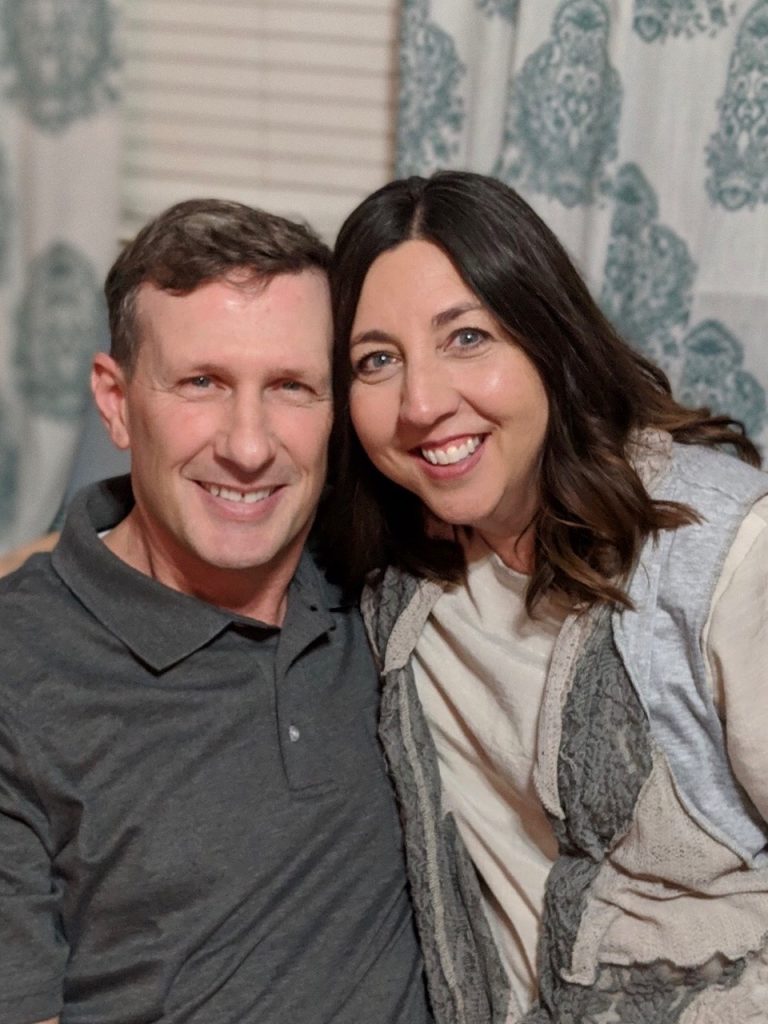
They applaud local and global Church leaders’ efforts to raise awareness and shatter the taboos surrounding depression, anxiety, mental health, and suicide. Wendy hopes that friends, family, and church members will “help end the stigma” as well. She points out that the recently launched website Suicide Prevention and Ministering has “so much great information with links to resources outside of the Church.” And even past the raw edges of grief three days after losing her son, Wendy recognized that “the Church’s focus for [that] month of September was actually a tender mercy. I didn’t know then that September is Suicide Prevention Month, and I had no idea how many people had suffered a suicide loss. The articles were timely for our ward—our youth.”
For anyone who may find themselves with a loved one who is at risk for suicide, Bruce and Wendy offer this advice, alluding to an October 2020 General Conference address by President Russell M. Nelson: “Children are myopic. They cannot see past the experiences that they’re having. We have to listen and let them feel what they feel in the moment. There will be opportunities to share our perspective, but their feelings must be validated first.” Other thoughts apply to loved ones of any age: “Listen without judgment. Please don’t dismiss [their] feelings. If they say anything that sounds like they might be considering suicide, ask.” Wendy emphasizes, “Don’t be afraid to ask. It won’t put the idea in their mind or make them start thinking about if they haven’t already. If the answer is yes, take action.”
Being willing to have the hard conversations with someone goes a long way. After listening, spending time with your loved one, and helping them find professional help, it is equally important to let the individual know that you haven’t gone anywhere and are still there for friendship and support: “Keep checking in,” Wendy says.
Have the days gotten any easier, four years on? Time always has a way of cushioning the pain of loss, but it is really through deepening faith and the gift of the Holy Comforter that the Tylers find new purpose and joy in life. Bruce knows that “Even though tests will continually be thrown in my path, I will learn and grow from those tests; and I will give thanks to my Father in Heaven, I will wipe the tears from my eyes, I will pick myself up and brush myself off, and then continue to move forward.”
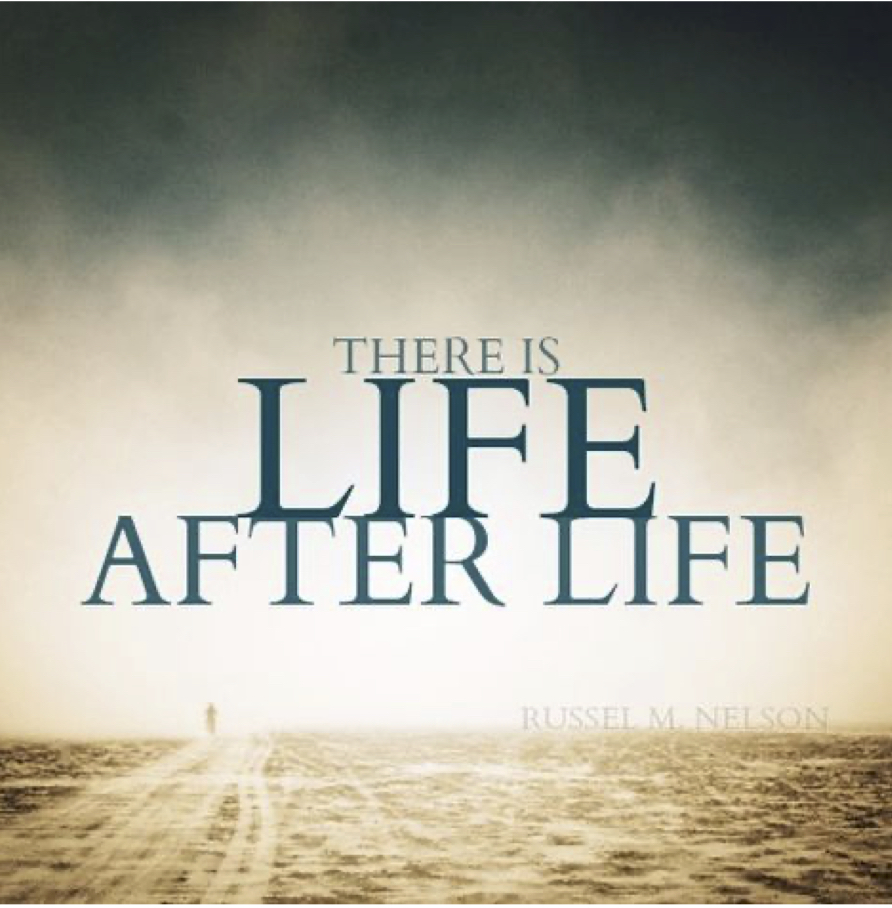
They both find strength in the doctrines of the Church of Jesus Christ, including revealed knowledge of premortal and postmortal life, Christ’s Atonement, and God’s love for all of His children. Wendy puts it this way: “I know that I shouted for joy when I learned of the Plan of Salvation and that Heavenly Father was going to provide a Savior who would willingly lay down His life for us so that we could return to live with our Father in Heaven.” Bruce adds, “I know without a doubt, because of the Atonement that our Lord and Savior Jesus Christ provided for us, that we will be able to put our arms around [Christian’s] neck and tell him how much we love him and how proud we were to be his earthly parents while he was with us.” For now, they can only live the best they know how and look forward to that day. As they do so, Wendy and Bruce both have this resolve: “Ingrained in my mind will always be this phrase, I Will Stick to the Plan.”
If you are in crisis, please call the National Suicide Prevention Lifeline at 1-800-273-TALK (8255), or contact the Crisis Text Line by texting TALK to 741741

